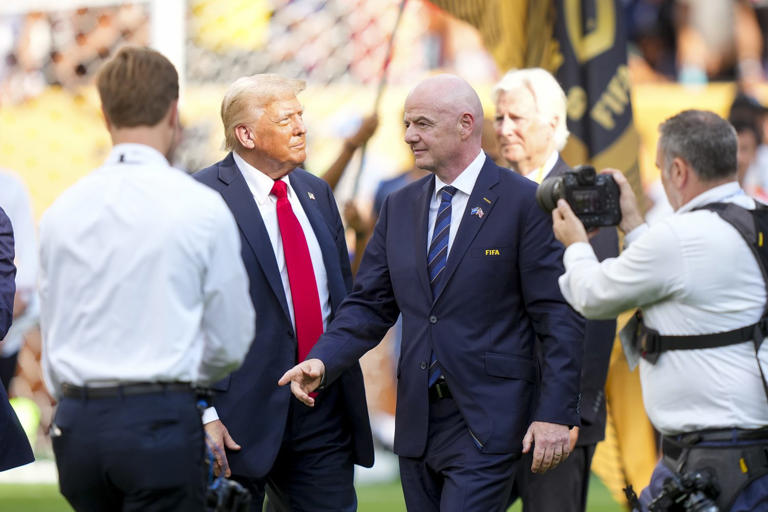FIFA has ruled out the possibility of suspending Israel from international football, despite growing calls from some quarters to impose sanctions similar to those taken against Russia following its invasion of Ukraine.
Reports in The Times suggested that the Union of European Football Associations (UEFA) had been under pressure to consider barring Israel and its clubs from competitions in response to its ongoing military operations in the Gaza Strip. However, FIFA president Gianni Infantino made clear on Thursday that such action is not currently being considered.
Read Also:
Hamas accepts Trump’s Gaza peace plan, agrees to release all Israeli hostages
FIFA may push World cup kick-offs past midnight in UK
Speaking at the opening of a closed-door meeting of FIFA’s Council on October 2, Infantino acknowledged “the ongoing situation in Gaza,” but urged the football world to focus on unity rather than division. “The power of football,” he said, “is to unite people in a divided world by offering a message of peace and unity.”
In a statement released after the meeting, FIFA reiterated its position that while the organization cannot resolve geopolitical crises, it has a duty to promote the sport’s unifying and humanitarian values. “FIFA cannot solve geopolitical problems, but it can and must promote football throughout the world by harnessing its unifying, educational, cultural, and humanitarian values,” Infantino said.
The FIFA president’s comments come amid growing international scrutiny of the organization’s stance on political conflicts. Critics have pointed out the apparent inconsistency between FIFA’s decision to suspend Russia from global competition after its invasion of Ukraine in 2022 and its reluctance to take similar action against Israel.
Observers note that while the circumstances are different, politics is inevitably intertwined. “It’s a sensitive and complex situation,” one European football analyst told New Daily Prime. “FIFA wants to avoid being drawn into political confrontation, but football has always reflected global tensions.”
For now, Israel’s national teams and clubs remain eligible to compete in FIFA- and UEFA-sanctioned tournaments. While discussions within European football bodies continue, any potential sanctions would likely require coordination and approval from FIFA itself.
The issue highlights the growing intersection between sport and global politics — and the difficulty for international bodies like FIFA in maintaining neutrality amid war and humanitarian crises. For Infantino, the priority, at least publicly, remains clear: to preserve football as “a force for unity” rather than division.



